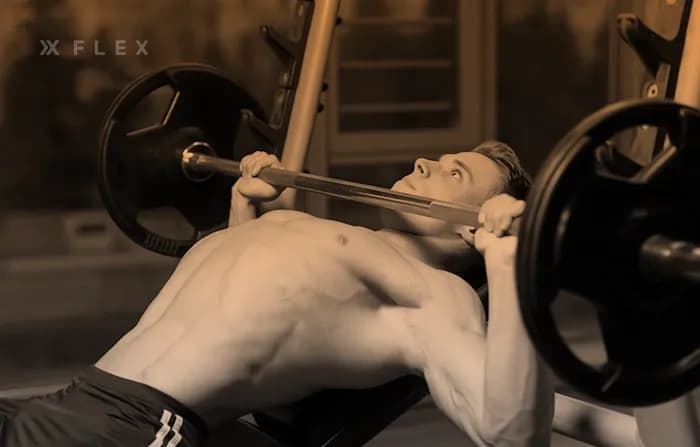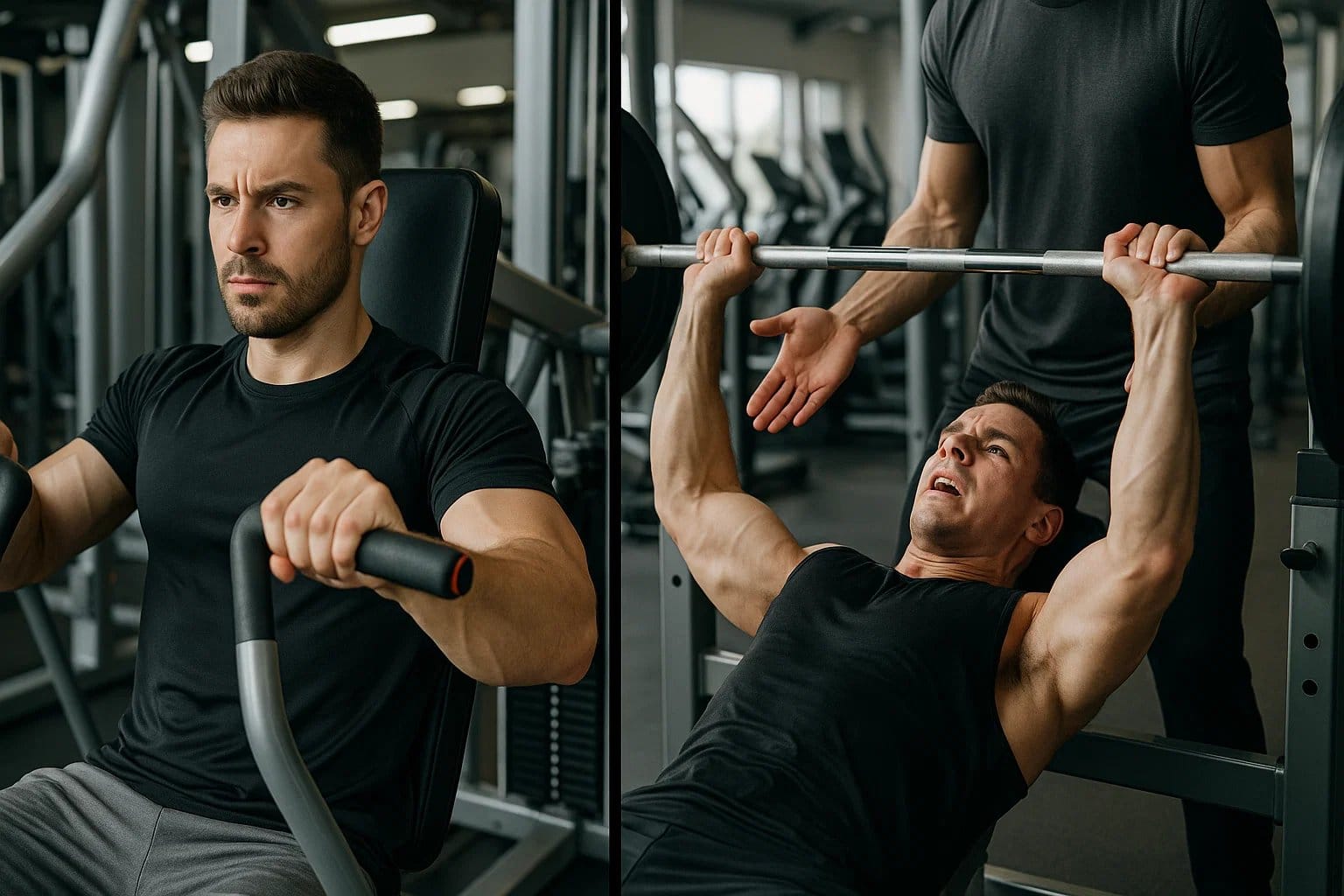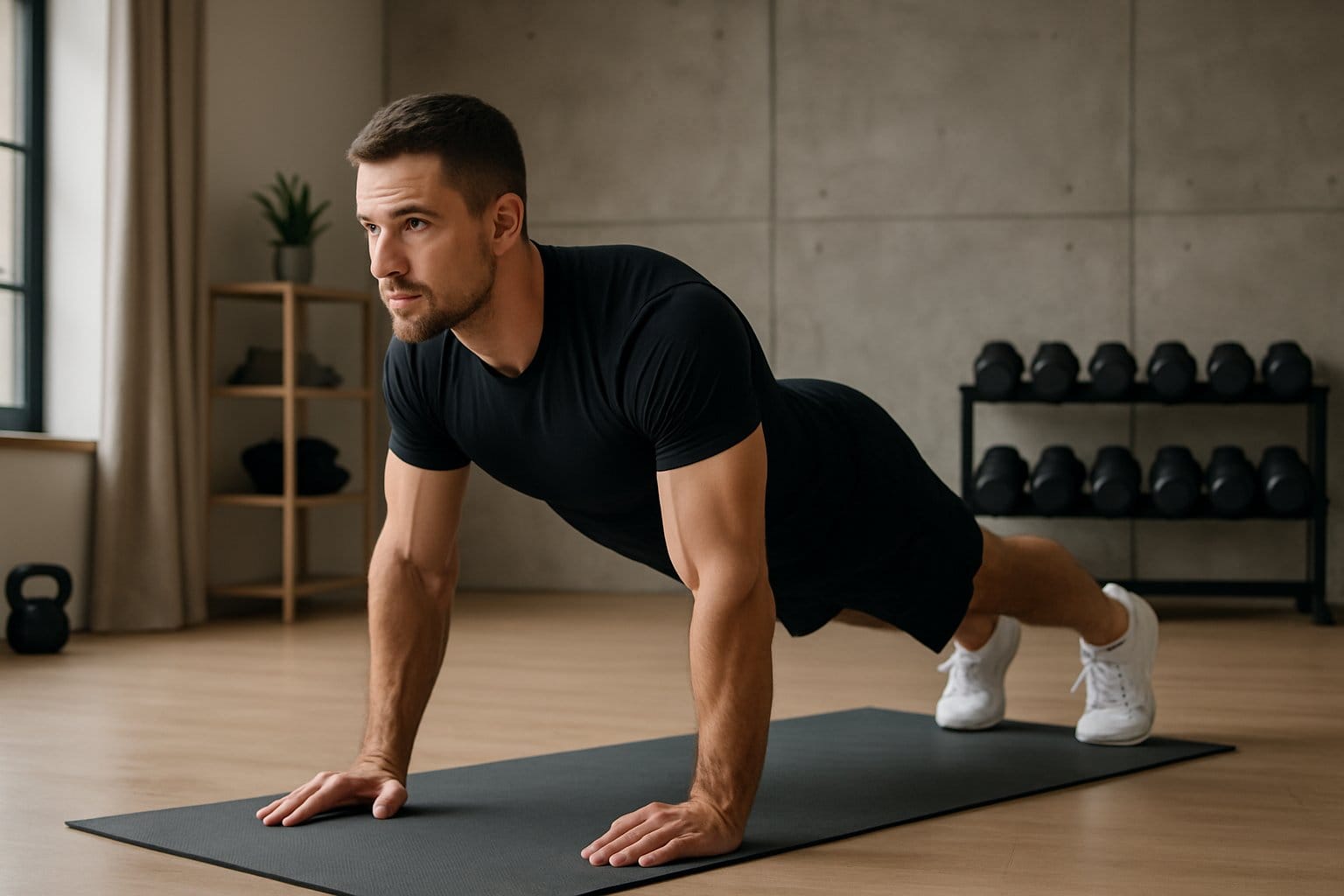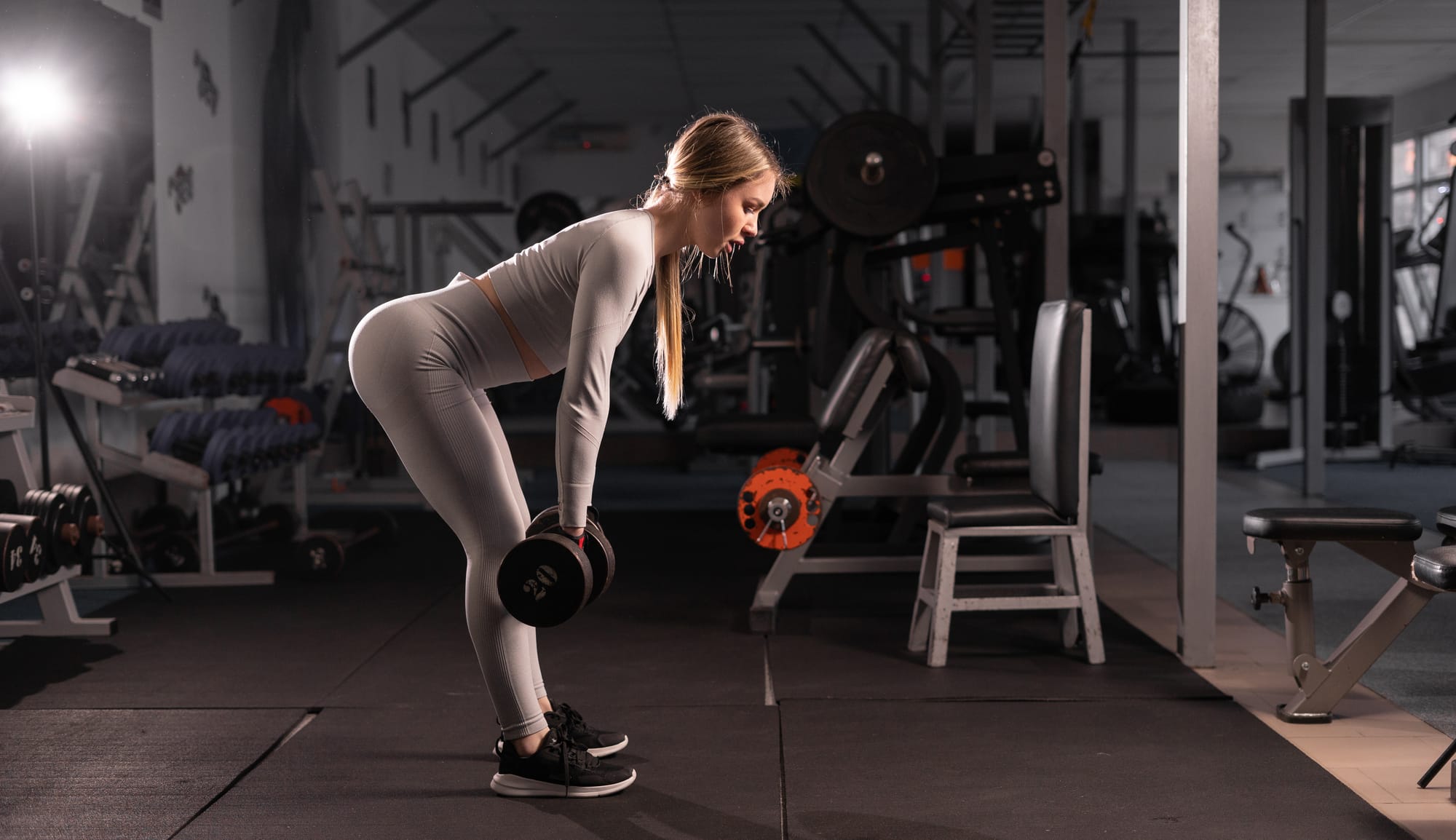How to Bench More: Get Strong & Improve Your One-Rep Max
This guide will help you learn how to bench more. Learn the fundamentals of bench press technique. Get tips to increase your bench press.
One of the best tells the gym that differentiates the “strong guys” from the rest of the pack is their ability to bench press.
We often ask the “How much do you bench?” question to size ourselves up against those who may seem fitter or stronger than ourselves.
When you have to answer, do you feel embarrassed about your response?
Hey.
Relax.
Take a breath. It’s not shameful to be a bench press beginner! However, this impressive compound exercise has optimal room for growth.
We mean both in gains as well as strength.
This article will explain what proper bench technique looks like, and what a reasonable amount to bench is when you’re just starting. We’ll also cover how to work towards overall bench press strength increases and up your one-rep max.
Let’s get sweaty and hit the bench.
Proper form for the bench has been hotly debated in the gym community. (Do you arch your back during a bench press or not??)
That’s usually the biggest question and we’ll get there.
But first off, let’s talk equipment, set-up, and body placement.
How Do You Bench Press Properly?
- Set up a weight bench in a flat position. Load your weight plates onto your barbell.
- Plant your feet firmly on the floor. Keep your feet wide and slightly turned out. This move will help you push through your legs and generate more power and strength.
- Set yourself up under the bar. Most commercial gyms have racked barbells that are specifically designed for bench pressing to ensure that you can easily get underneath and unrack the barbell.
- Arch your back. Although how much you should arch your back during a bench press is debated among powerlifters and bodybuilders, the consensus is that you need some arch.
Bench Press Grip
- Grab your bar. Using an overhand grip, place your barbell firmly in your palms. Hand placement is important here. You want to make sure your barbell doesn’t slip towards your fingers. This will draw your hands back, forcing you to cock your wrists backward so you lose power and stability.
Your grip width depends on what your weightlifting goals are and your body type. If you have long arms, use a wider grip. A wide grip can also be beneficial for lifting heavier weights at fewer reps. If you have shorter arms, try a narrower grip. If you’re looking for more reps to attain hypertrophy, this can help too.
- Push your back onto the bench and unrack your barbell, bracing your core.
- Inhale and slowly bend your elbows to lower your barbell towards your chest. Think about “bending the bar” (no, you can’t really bend a barbell unless you have the strength of a superhero, but this will help you keep your elbows tucked in to save your shoulders from injury.)
- Bring the bar to your chest. Here, your elbows should be bent at about 90 degrees. Do not let the weight rest or drop onto your chest, but it should make contact. Aim for the middle of your chest. Keep this spot consistent with each rep.
- Exhale to forcefully push your barbell back over the top of you. Remember to drive through your feet and legs and keep your core engaged for power.
- This completes one rep. Continue as needed. Beginners should try 3 sets of 10 reps. For hypertrophy, try 8-12 reps per set. For strength, perform 3 sets of 5-6 reps. If you are trying for a one-rep max (only one rep of the heaviest weight you can cleanly lift), always have a spotter at your side.
How Much Should You Be Able to Bench Press?
How much should a total newbie be able to bench? As a general rule of thumb, physically healthy men should be able to bench their bodyweight as novices.
Women should aim for about half their body weight when starting on the bench press.
If you’re not quite there yet, start by just benching the bar to get familiar with body positioning. After that, you can aim to increase your barbell weight.
Most weight training forms, including the bench press, always work toward progressive overload. This is where you increase either weight, reps, number of sets, or the total duration of your workout as you improve.
What Muscles Does the Bench Press Work?
Bench pressing primarily works your upper body. Your chest, shoulders, and triceps are emphasized in this power move.
These are the main muscles that go to work when you bench press:
Chest
First off, benching is one of the most chest-building moves you can do in the gym. The Pectoralis Major (your pecs) does the most work here. Bench presses hit both your upper and lower chest when you do them correctly.
Shoulders
Next, the anterior deltoids (your front delts) are the main shoulder muscles at work here. As you lift your load, these muscles engage to help you generate power and maintain stability.
Triceps
Up third, the triceps help extend your elbows while you lift your arms in a bench press.
Serratus Anterior
Furthermore, the serratus anterior muscles along your upper ribcage help stabilize your shoulder blades on the bench. They also help the ribs expand to let you breathe! In a good bench press, controlled inhales and exhales will help you power and focus your movement.
Biceps
The biceps don’t directly go to work in a bench press, but they do function as an assisting muscle to help stabilize your body.
Upper Back
Finally, your rhomboids and trapezius muscles in the upper back play a role here too. They keep your shoulders balanced so you can maintain proper form.
How Can I Increase My Bench Press Weight?
Okay, so you understand the bench press technique. Let’s learn how to bench more.
Optimize Your Number of Sets
Are you over or underworking your bench?
There’s a strength sweet spot when it comes to trying to increase your bench press weight.
Research shows that training at 85% of your one-rep max (1RM) twice per week and making sure to include approximately 8 weekly sets of bench presses was the most connected with making swift progress.
Use Fewer Reps But More Weight
Working with a heavier weight but performing fewer reps may directly help you increase your 1RM: the ultimate test of bench strength.
One study showed that heavy weight, low reps, and long pauses between sets allowed for higher one-rep maxes and more lean arm mass gains in men who regularly strength trained.
This was contrasted with those who did more reps at a lower weight and saw less gains and less of an increase in strength.
Train Adjacent Muscles
Overdoing it by just training the bench can lead to repetitive strains or simply boredom and lack of motivation when it comes to that particular move.
Train some independently that work to help your bench press. Chest workouts, for example, can help you train a stronger bench.
Training push-ups and bench presses as part of your weekly routine will help you improve your chest and arm strength and alleviate some of your boredom.
If the bench is your favorite move and you can’t get enough of it, you may want to simply play around with your technique and try some alternate variations of this move.
Competitive athletes, for example, experiment with different techniques and get very in tune with their shoulder positioning to find the best bench variations for their bodies.
You may also want to try moves like an inclined or declined bench press to single out the upper or lower pecs, based on what you need more of that day. This can help with muscular imbalances that might be hindering your progress or just give you a fun change of pace.

Switching it up is one of the best things you can do to stay motivated!
The triceps also play a key role in bench pressing and often go neglected in favor of the biceps.
Moves like dips and tricep push-ups can get you stronger to allow for a heavier bench weight.
Plus, strong triceps are a component of so many big gym moves, you’d be foolish to let tricep training go by the wayside.
They can even get you fit enough for calisthenics exercises like the muscle-up or the full planche.
Train With a Spotter
Working with a spotter is not only a great way to get a motivational boost in the form of a gym companion, but it can be essential for your safety too. Plus, if they’re experienced in the gym, they can even give you tips on how to bench more.
When you train heavy weights like your one-rep max, having a good spotter on hand will help in case of accidents. They can allow you to bail out of a lift safely or take some of the effort out of a very heavy bench press if you need help.
This study suggests that the mere presence of a spotter, even when they don’t intervene in your move can improve your performance since having someone else trust and believe in you can make you believe in yourself.
Think about it: when you say “Someone else believes that I can do this,” it’s pretty likely to improve your perception of your strength abilities.
Big Picture
The bench can be a phenomenal way to test and assess your overall strength and fitness.
It can be a great BENCHmark (see what we did there?) of how well your fitness journey is coming along. This is true whether you’re just starting out or if you’re an experienced lifter prepping for a competition.
No matter where you are, the bench press is great to add to your workout routine, provided you lift safely to avoid injuries.
To get a heavier bench, focus on:
- More weight, less reps.
- Optimizing the number of sets you do per week (Hint: around 8 is a good goal for most).
- Train adjacent muscle groups.
- Train with a spotter.
All of these techniques can teach you how to bench more so you improve not only your one-rep max, but your general strength in the bench press to achieve progressive overload.
And of course, keeping track of your progress is the only way to improve!
Knowing what you’re working with helps immensely when it comes to upping your weight.
We’ve made tracking your workouts failproof. Flex offers an all-in-one workout platform to help you learn new exercises, visualize your fitness journey, and keep all your PRs in one place.
Get simple, customized fitness plans or introduce a little friendly competition to your fitness community by sharing exercises with your friends. Try it for free through the Flex fitness app.
References :
Mangine, G. T., Hoffman, J. R., Gonzalez, A. M., Townsend, J. R., Wells, A. J., Jajtner, A. R., Beyer, K. S., Boone, C. H., Miramonti, A. A., Wang, R., LaMonica, M. B., Fukuda, D. H., Ratamess, N. A., & Stout, J. R. (2015). The effect of training volume and intensity on improvements in muscular strength and size in resistance-trained men. Physiological reports, 3(8), e12472. https://doi.org/10.14814/phy2.12472
Ourieff J, Scheckel B, Agarwal A. Anatomy, Back, Trapezius. [Updated 2023 Mar 11]. In: StatPearls [Internet]. Treasure Island (FL): StatPearls Publishing; 2023 Jan-. Available from: https://www.ncbi.nlm.nih.gov/books/NBK518994/
Peterson, M. D., Rhea, M. R., & Alvar, B. A. (2004). Maximizing strength development in athletes: a meta-analysis to determine the dose-response relationship. Journal of strength and conditioning research, 18(2), 377–382. https://doi.org/10.1519/R-12842.1
Saeterbakken, A. H., Mo, D. A., Scott, S., & Andersen, V. (2017). The Effects of Bench Press Variations in Competitive Athletes on Muscle Activity and Performance. Journal of Human Kinetics, 57, 61–71. https://doi.org/10.1515/hukin-2017-0047
Sheridan, A., Marchant, D. C., Williams, E. L., Jones, H. S., Hewitt, P. A., & Sparks, A. (2019). Presence of Spotters Improves Bench Press Performance: A Deception Study. Journal of Strength and Conditioning Research, 7, 1755–1761. https://doi.org/10.1519/jsc.0000000000002285
Related articles
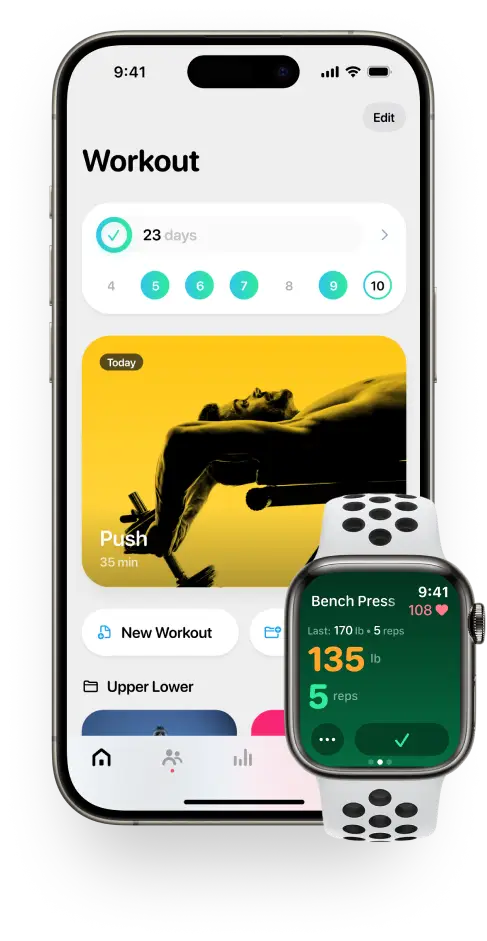
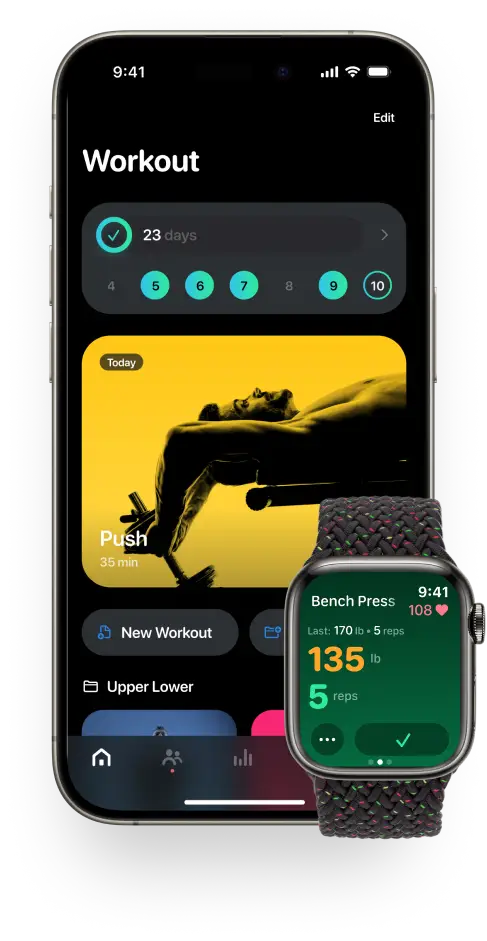
Get fit with Flex
Build muscle & lose weight fast for free.
Available on iPhone + Apple Watch
